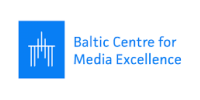New Report Released on EU-Related Misinformation in the Baltics
The latest report, “How EU Related Misinformation is Spread in the Baltics,” has been published as part of D2.5 of the EU-funded project ID 118471, coordinated by the University of Tartu. The report, authored by Evita Puriņa from RE:BALTICA, explores the proliferation of misinformation in Lithuania, Latvia, and Estonia, particularly concerning the EU Green Deal, migration policies, and other key issues.
With the European Parliament elections already underway, the study highlights how deceptive narratives are being used to influence public opinion across the Baltic states.
Key findings include:
Misinformation Themes: Popular falsehoods revolve around the EU Green Deal, migration policies, and environmental regulations. Claims that the EU will ban old cars, stop repairs, and prohibit heating with firewood are prevalent.
Social Media Influence: Platforms like TikTok are major channels for spreading misinformation, with political parties and influencers amplifying deceptive narratives to mobilize voters.
Environmental Myths: Myths about electric cars and bans on wood heating are widespread, often linked to broader conspiracy theories about EU control and regulations.
Migration Scares: False claims about the EU Migration Pact, suggesting an influx of immigrants, are used to stoke public fear and opposition.
Disinformation Tactics: Local politicians and parties are key actors in spreading misinformation, often to gain electoral advantage.
The report underscores the importance of fact-checking and public awareness to combat misinformation in the Baltic region.







